What is Chronology?
Chronology is the arrangement of events or phenomena in the order of their occurrence in time. It involves establishing the temporal sequence in which events occurred, allowing for a better understanding of historical, geological, and biological processes.
Importance of Chronology
Understanding chronology is crucial in various fields:
- History: Chronology helps historians understand the sequence of events, the duration of events, and the intervals between them.
- Geology: Chronology is essential in determining the age of rocks, fossils, and geological formations, helping us understand the Earth's history.
- Biology and Evolution: Chronology helps biologists and paleontologists understand the timeline of evolutionary processes and the emergence of different species.
Methods of Establishing Chronology
There are several methods used to establish chronology:
- Relative Dating: This method determines the order of events without determining their absolute age. It involves techniques like stratigraphy, which examines the layering of rocks and fossils.
- Absolute Dating: Absolute dating methods, such as radiometric dating, provide specific chronological dates for events or objects by analyzing the decay of radioactive isotopes.
- Historical Records: Documents, inscriptions, and artifacts provide valuable chronological information, allowing historians to construct timelines of historical events.
Chronological Concepts
Understanding chronology involves grasping various concepts:
- Sequence of Events: Chronology helps us understand the order in which events occurred, providing context and causality.
- Time Scales: Different disciplines use specific time scales, such as the geological time scale, to categorize and understand the chronology of events.
- Chronological Accuracy: It is essential to critically evaluate the accuracy of chronological data and methods used to establish timelines.
Conclusion
Chronology is a fundamental aspect of understanding the temporal order of events in history, science, and various academic disciplines. By comprehending chronology, we gain valuable insights into the progression of events, the development of life on Earth, and the shaping of human history.
.◂Science Worksheets and Study Guides Eighth Grade. Organic compounds
Study Guide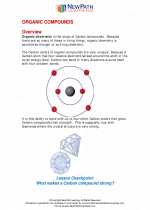 Organic compounds
Organic compounds  Worksheet/Answer key
Worksheet/Answer key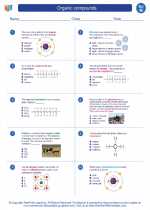 Organic compounds
Organic compounds  Worksheet/Answer key
Worksheet/Answer key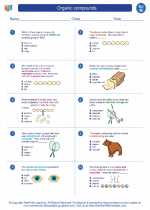 Organic compounds
Organic compounds  Worksheet/Answer key
Worksheet/Answer key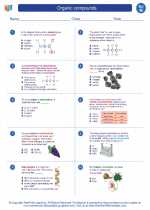 Organic compounds
Organic compounds  Vocabulary/Answer key
Vocabulary/Answer key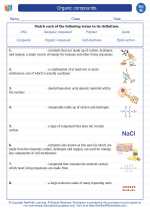 Organic compounds
Organic compounds  Vocabulary/Answer key
Vocabulary/Answer key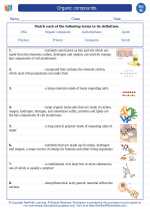 Organic compounds
Organic compounds 

 Worksheet/Answer key
Worksheet/Answer key
 Worksheet/Answer key
Worksheet/Answer key
 Worksheet/Answer key
Worksheet/Answer key
 Vocabulary/Answer key
Vocabulary/Answer key
 Vocabulary/Answer key
Vocabulary/Answer key

The resources above cover the following skills:
Physics: Students will use scientific skills and processes to explain the interactions of matter and energy and the energy transformations that occur.
Thermodynamics: Identify and explain that heat energy is a product of the conversion of one form of energy to another.
Identify and describe the various forms of energy that are transformed in order for systems (living and non-living) to operate: Chemical - Flashlight-Light; Mechanical - Pulleys-Motion; Solar/Radiant - Solar calculator; Chemical - Plant cells.